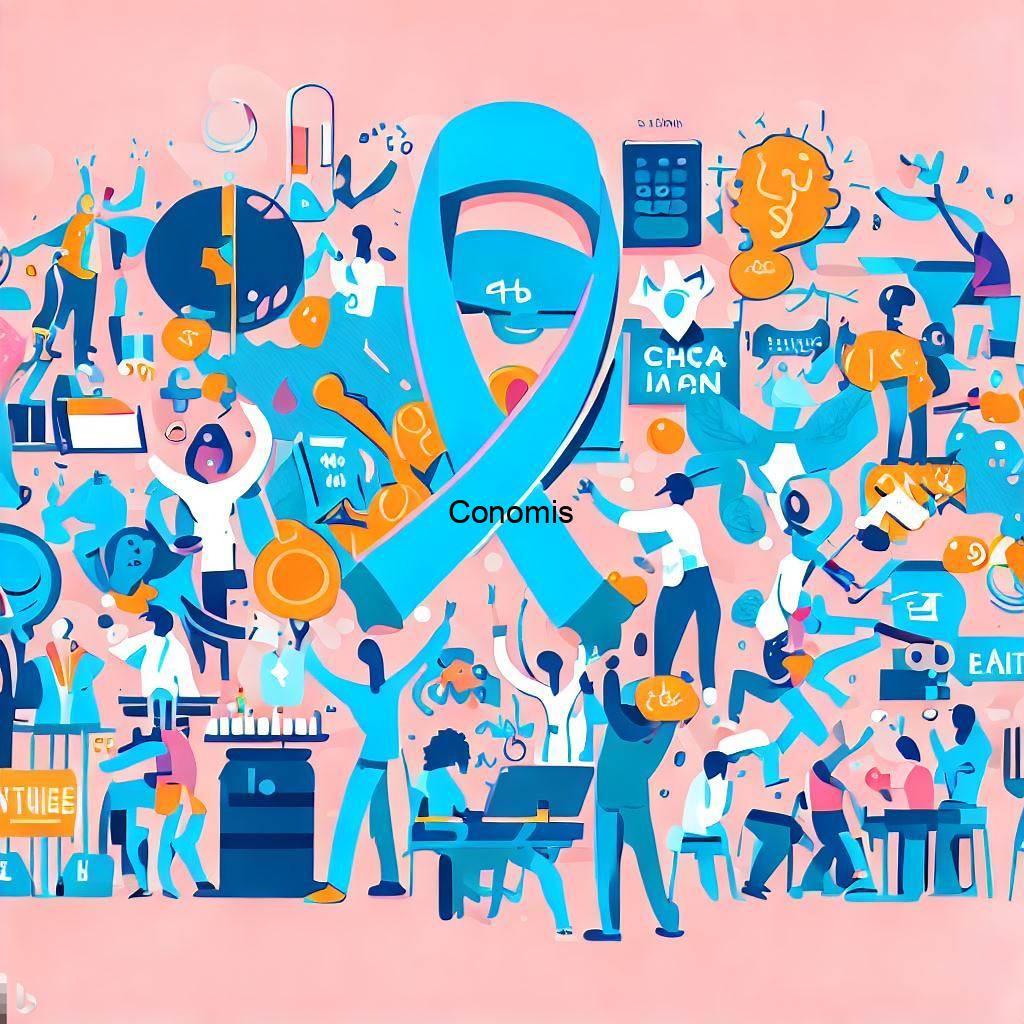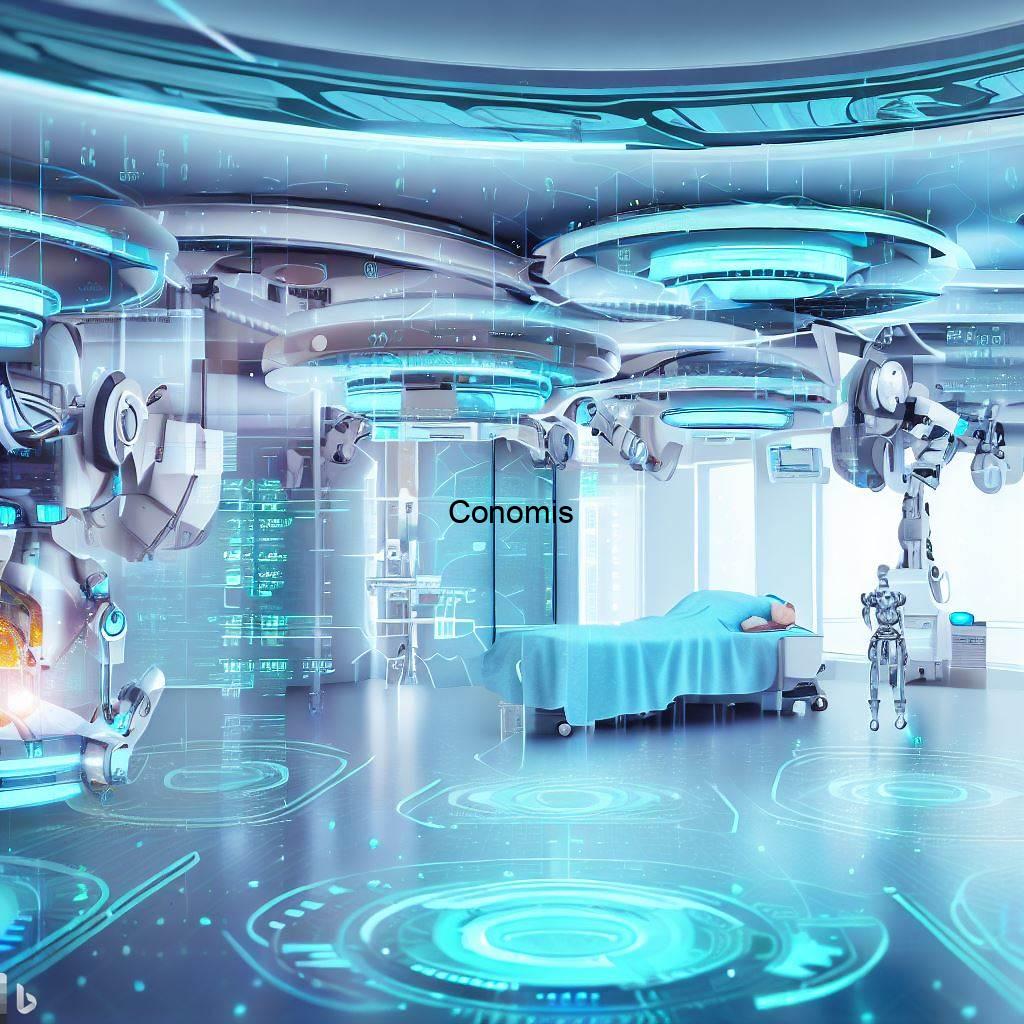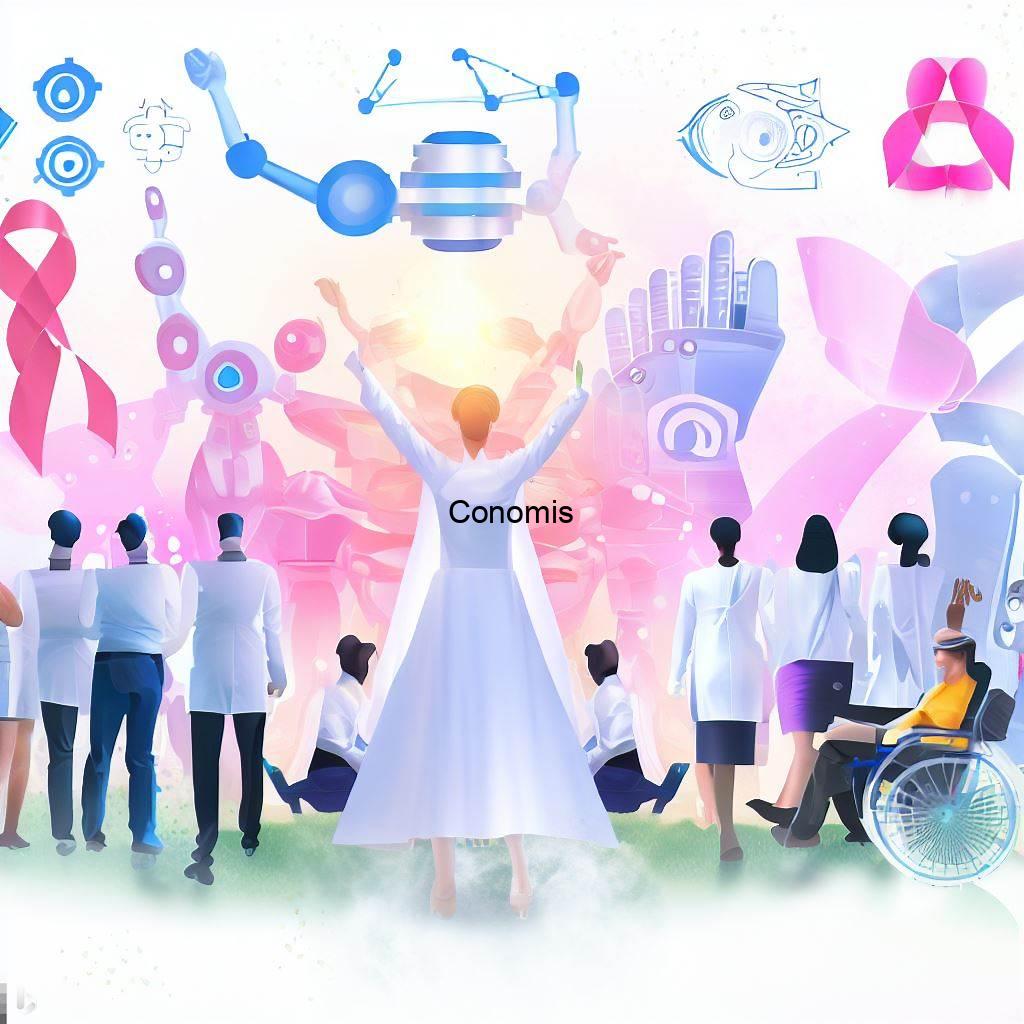Table of Contents
Introduction
Cancer, a formidable adversary to human health, has persisted as a longstanding and complex challenge for medical professionals and researchers worldwide. This article delves into the multifaceted world of cancer, shedding light on its profound psychological impact on patients, families, and communities. From its earliest recorded instances in history to the modern-day epidemic, cancer has shaped the course of medical advancements and public health initiatives.
Over the years, significant progress has been made in cancer research and treatment. Today, medical science offers an array of therapies, including surgery, chemotherapy, radiation, immunotherapy, and targeted therapies. Despite these advancements, cancer remains a leading cause of death globally, necessitating ongoing efforts to unravel its mysteries.
One promising area in cancer research is the incorporation of artificial intelligence (AI). AI algorithms have shown great potential for assisting with early detection, personalized treatment plans, and drug development. Their ability to analyze vast amounts of medical data swiftly can aid in making informed decisions, thus improving patient outcomes.

Moreover, societal contributions play a crucial role in battling cancer. Public awareness campaigns, fundraising events, and support systems for patients and their families are vital in raising awareness and funding for research.
Addressing environmental factors is also paramount in cancer prevention. Identifying and minimizing exposure to carcinogens can reduce cancer risk, emphasizing the importance of environmental medicine in the battle against cancer.
Non-governmental organizations (NGOs) and philanthropists have also been pivotal in supporting cancer research and patient care. Their financial contributions and advocacy efforts help bridge gaps in healthcare systems, enabling access to treatment for vulnerable populations.
In conclusion, the fight against cancer requires a comprehensive approach encompassing medical research, psychological support, innovative technology, community involvement, and environmental consciousness. By synergizing these elements and fostering a united effort, humanity can inch closer to conquering cancer and alleviating its profound impact on individuals and societies worldwide.
The Psychological Journey After Cancer
The psychological journey after cancer is a profound and often overlooked aspect of a patient’s experience. Beyond its devastating impact on physical health, cancer leaves survivors grappling with a myriad of emotional challenges that can persist long after treatment ends. Coping with the fear of recurrence and uncertainty about the future are common struggles that can significantly affect a survivor’s overall well-being.
The diagnosis and treatment of cancer can lead to a rollercoaster of emotions, from shock and denial to anger, sadness, and anxiety. The toll of navigating through the complexities of treatment, coping with side effects, and facing mortality can be overwhelming. Many survivors also endure feelings of isolation and loneliness, as they may struggle to find understanding and support from those who have not experienced cancer firsthand.
Recognizing the psychological impact of cancer is essential for providing comprehensive care to patients. Integrating mental health support into cancer treatment plans can help survivors cope with the emotional challenges they face. Psychosocial interventions, support groups, counseling, and therapy can offer valuable tools for survivors to navigate their feelings and foster resilience.

Furthermore, healthcare providers and loved ones must be attentive and compassionate in addressing survivors’ psychological needs. Creating an open and empathetic environment where survivors can express their fears and concerns without judgment is crucial. This enables them to develop coping strategies, regain a sense of control, and rebuild their lives after cancer.
In conclusion, cancer’s psychological aftermath can be as challenging as its physical toll on patients. Understanding and addressing the emotional aspects of survivorship are fundamental components of holistic cancer care. By providing support, fostering resilience, and validating survivors’ experiences, we can help them navigate the psychological journey after cancer and improve their overall quality of life.
From Ancient Medicine to Modern Treatments
The journey of cancer treatment spans millennia, evolving from ancient medicinal practices to cutting-edge modern therapies. In ancient times, cancer was often shrouded in mystery and fear, with treatments relying on a combination of herbal remedies, rituals, and prayers. Surgical interventions, though primitive, were occasionally attempted in certain civilizations.
As medical knowledge expanded, so did the understanding of cancer. The Renaissance era witnessed significant progress in anatomy and surgical techniques, leading to more refined surgical approaches for cancer removal. However, the absence of anesthesia and infection control hindered further advancements.
The 19th and 20th centuries marked a turning point in cancer treatment. The discovery of anesthesia, the development of surgical asepsis, and the advent of X-rays revolutionized cancer care. Radiation therapy emerged as a powerful tool for localized tumor treatment, while chemotherapy introduced a systemic approach to targeting cancer cells.

Fast forward to the present day, and cancer treatment has undergone remarkable transformations. Advancements in genomics and molecular biology have paved the way for targeted therapies, enabling precise treatments tailored to the genetic makeup of individual tumors. Immunotherapy, harnessing the body’s immune system to fight cancer, has emerged as a groundbreaking approach with remarkable success in certain cancer types.
Additionally, precision medicine has gained momentum, utilizing advanced diagnostics to identify specific genetic mutations in tumors, guiding personalized treatment strategies for each patient.
While challenges persist in the battle against cancer, the progress from ancient herbal remedies to modern targeted therapies and immunotherapy showcases the remarkable ingenuity of medical science. With ongoing research and collaboration, the future promises even more innovative and effective treatments, raising hope for improved outcomes and a world where cancer can be more effectively managed and, eventually, cured.
The Futuristic Outlook on Cancer
The future of cancer treatment appears promising as advancements in technology pave the way for innovative and personalized therapies. One of the most exciting developments is gene editing, which holds the potential to revolutionize cancer treatment. Techniques like CRISPR-Cas9 allow scientists to precisely modify genes, opening up possibilities for targeting cancer-causing mutations directly.
Personalized medicine is another futuristic approach that tailors treatment plans to individual patients based on their unique genetic profiles and other characteristics. By understanding the specific genetic alterations driving a person’s cancer, medical professionals can prescribe treatments that are more likely to be effective, sparing patients from unnecessary and potentially harmful therapies.
Immunotherapy, already a groundbreaking treatment, is expected to become even more potent in the future. Researchers are continuously exploring ways to enhance the body’s immune response to cancer, with the aim of achieving long-lasting remissions and cures.
Furthermore, nanotechnology offers exciting prospects for delivering targeted therapies directly to cancer cells while sparing healthy tissues. Nanoparticles loaded with drugs can be engineered to seek out and destroy cancer cells, minimizing side effects and improving treatment outcomes.

Artificial intelligence (AI) is also making significant strides in cancer research and treatment. AI algorithms can analyze vast amounts of patient data and medical literature to identify patterns and correlations that may lead to new discoveries and more personalized treatment strategies.
As we embark on this futuristic outlook, collaboration among scientists, researchers, healthcare providers, and technology experts will be essential to translate these innovative concepts into practical and accessible treatments. The synergy of cutting-edge technology, precise understanding of cancer biology, and compassionate patient care will lead us toward a future where cancer can be more effectively managed, and ultimately, defeated. With dedication, determination, and unwavering hope, the fight against cancer is steadily marching towards a brighter, healthier future for all.
AI Revolutionizing Cancer Imaging and Treatment
The integration of artificial intelligence (AI) into cancer imaging and treatment has ushered in a revolutionary era in oncology. With AI-driven imaging technologies, early detection and diagnosis of cancer have seen significant improvements. Machine learning algorithms, a subset of AI, play a crucial role in analyzing medical images with unprecedented accuracy, assisting clinicians in identifying subtle signs of malignancy that might be missed by the human eye. This early detection enhances the likelihood of successful treatment and improved survival rates.
Moreover, AI has shown tremendous potential in optimizing treatment planning for cancer patients. By analyzing vast amounts of patient data, AI algorithms can generate personalized treatment recommendations, considering factors such as the patient’s genetic profile, tumor characteristics, and medical history. This personalized approach enables oncologists to tailor treatment regimens that are more effective and carry fewer side effects, leading to better patient outcomes and enhanced quality of life during and after treatment.

AI is also transforming radiation therapy, a critical component of cancer treatment. AI-powered systems can efficiently delineate tumor boundaries and vital organs on imaging scans, aiding radiation oncologists in devising precise and targeted radiation plans. This level of precision minimizes damage to healthy tissues surrounding the tumor, increasing the therapeutic effect while reducing potential harm to the patient.
Despite these remarkable advancements, there are still challenges to overcome, including the need for large, diverse datasets to train AI algorithms effectively and ensuring ethical and transparent use of AI in healthcare. Nevertheless, the ongoing progress in AI-driven cancer imaging and treatment offers great hope for the future. As AI continues to evolve, it holds the potential to transform cancer care, empowering clinicians with powerful tools and ultimately improving outcomes for cancer patients worldwide.
Inspiring Stories of Cancer Patients and Their Journey
The world of cancer is not only filled with medical records and treatments but also with incredible stories of strength and courage. Every cancer patient embarks on a journey that is uniquely theirs, and within these stories lies a tapestry of hope, resilience, and unwavering determination. From the moment of diagnosis to the triumphs of treatment, these inspiring narratives shed light on the human spirit’s extraordinary capacity to overcome adversity.
Each patient’s journey is marked by moments of uncertainty and fear, but also by moments of immense bravery and hope. These stories not only offer insights into the challenges that cancer patients face but also highlight the support and love that surrounds them. The unwavering dedication of caregivers, family members, and friends plays a pivotal role in helping patients navigate through their darkest hours.
By sharing these experiences, patients and their loved ones not only find solace and healing but also inspire others facing similar battles. These stories forge connections, creating a community of support where individuals can draw strength from one another and find a sense of belonging.

Moreover, these narratives bring awareness to the importance of early detection, access to quality healthcare, and ongoing research for better treatment options. They serve as a reminder that cancer is not only a medical condition but a human experience that impacts lives on profound levels.
In conclusion, the inspiring stories of cancer patients and their journeys are testaments to the indomitable spirit of the human heart. They serve as beacons of hope, reminding us that even amidst the darkest times, the human spirit can shine brightly with resilience and determination. Sharing these stories fosters empathy, understanding, and support, ultimately creating a compassionate and united community that stands together in the fight against cancer.
Societal and Government Contributions in Cancer Care
Collective efforts from society and government are essential in addressing the challenges posed by cancer. Society’s contributions involve funding research initiatives, supporting cancer awareness campaigns, and fostering a supportive environment for patients and their families. Meanwhile, the government plays a crucial role in cancer care by implementing policies that ensure affordable access to healthcare and treatment options. By combining these efforts, we can create a stronger, more effective approach to combating cancer and improving the lives of those affected by this devastating disease.
Environmental Medicine in Cancer Treatment
Environmental medicine’s importance in cancer treatment lies in recognizing the impact of environmental factors on cancer risk and management. By identifying and mitigating environmental contributors to cancer, we can enhance prevention and treatment strategies, potentially improving patient outcomes and reducing the burden of this disease. Understanding the link between environmental exposures and cancer empowers healthcare professionals to develop targeted interventions and advocate for policies that promote a healthier environment, thereby contributing to a more comprehensive and effective approach to cancer care.
Impact on Families and Society
Cancer’s impact extends beyond the individual patient; families and communities also bear the burden. Understanding and supporting these affected groups are crucial for fostering a compassionate society.

The Role of NGOs and Philanthropists in the Fight Against Cancer
Non-governmental organizations and philanthropists play a pivotal role in supporting cancer research, patient care, and advocacy. Their contributions are instrumental in advancing the fight against cancer.
AI and ML Applications in Treating Different Types of Cancer
The applications of artificial intelligence (AI) and machine learning (ML) in treating different types of cancer have revolutionized the field of oncology. Cancer is a complex and heterogeneous disease, and each patient’s tumor possesses unique characteristics that demand personalized treatment approaches.
AI and ML algorithms have the capability to analyze extensive datasets, including genetic information, molecular profiles, medical histories, and treatment outcomes. By processing this wealth of information, these technologies can identify patterns and correlations that human analysis may overlook, leading to more accurate and tailored treatment recommendations.
Through AI-driven analysis, oncologists can gain insights into a patient’s specific cancer type and identify potential treatment options that offer the greatest chance of success while minimizing side effects. This personalized approach takes into account the patient’s individual genetic makeup and the tumor’s specific biological features, enhancing the precision and efficacy of treatment plans.
Furthermore, AI and ML applications have proved instrumental in predicting treatment responses and potential adverse reactions. This knowledge empowers medical professionals to make more informed decisions and adjust treatment strategies as needed, thus optimizing patient outcomes and enhancing the quality of life during cancer treatment.

AI and ML are also transforming cancer imaging, facilitating early detection and accurate diagnosis. AI-powered image analysis can help detect tumors at their earliest stages, enabling timely intervention and improved prognosis.
As these technologies continue to evolve, collaborations between medical experts, data scientists, and technology developers become increasingly critical. Together, they work to refine and validate AI and ML models, ensuring their safe and effective integration into clinical practice.
In conclusion, AI and ML applications are driving significant advancements in cancer treatment. By harnessing the power of these technologies, medical professionals can unlock new insights into cancer biology and provide tailored treatment plans for patients, ultimately enhancing cancer care and offering hope for improved outcomes in the fight against this devastating disease.
The Future of AI and ML in Comprehensive Cancer Treatment
The future of cancer treatment is promising with the integration of artificial intelligence (AI) and machine learning (ML). These cutting-edge technologies offer transformative potential by harnessing data-driven insights to revolutionize cancer care. By analyzing vast amounts of patient data, including genetic information, molecular profiles, and treatment outcomes, AI and ML can identify patterns and correlations that guide medical professionals in designing comprehensive and personalized treatment regimens.
The power of AI and ML lies in their ability to provide precise and individualized approaches to cancer treatment. Each patient’s tumor is unique, and personalized therapies based on their specific biological characteristics can maximize treatment effectiveness while minimizing side effects.

Moreover, AI and ML can aid in early detection and diagnosis, enabling timely interventions and improved prognoses. By optimizing treatment planning and predicting treatment responses, these technologies hold the potential to improve patient outcomes and enhance the overall quality of cancer care.
The future of AI and ML in comprehensive cancer treatment depends on ongoing research, collaboration, and integration into clinical practice. As the capabilities of these technologies continue to expand, they offer hope for a future where cancer treatment is more targeted, effective, and tailored to the individual, bringing us closer to defeating this relentless disease.
AI-Driven Radiation Therapy Planning
Radiation therapy is a cornerstone in cancer treatment. AI algorithms enhance precision and efficiency in radiation therapy planning, leading to better tumor targeting and sparing healthy tissues.
AI’s Focus on Drug-Patient Response
Each patient’s response to cancer treatments varies. AI helps predict patient responses to specific drugs, enabling oncologists to choose the most effective treatment for individual cases.
Emerging Roles of AI in Cancer Drug Development
AI is playing an increasingly crucial role in cancer drug development. By analyzing extensive datasets, AI identifies potential therapeutic targets, expediting drug discovery. This accelerated process paves the way for the development of new cancer drugs and precision therapies, bringing hope for more effective and targeted treatments to combat this devastating disease.

Global Collaboration for Cancer Control
Addressing the global impact of cancer requires international cooperation. Government agencies, NGOs, medical experts, and society must unite efforts to combat this universal health challenge. The World Health Organization (WHO) plays a central role in coordinating global cancer control strategies.

Conclusion
Cancer remains a significant challenge worldwide, impacting individuals, families, and communities. As medical knowledge advances and technology continues to evolve, we stand on the precipice of a new era in cancer care. The combination of AI and ML brings hope for more effective, precise, and individualized treatments, promising better outcomes for patients in the future.

FAQs
Is cancer only a physical ailment?
No, cancer can have a profound psychological impact on patients and survivors.
What are some ancient cancer treatments?
Ancient treatments ranged from herbal remedies to radical surgeries.
How does AI help in cancer diagnosis?
AI-driven imaging technologies aid in early cancer detection.
What role do NGOs play in cancer care?
NGOs play a crucial role in supporting research, patient care, and advocacy.
How can global collaboration help in cancer control?
International cooperation is essential in addressing the global impact of cancer and implementing effective control strategies.
You Can Also Read
Conomis Thoughts
![]() Copyright 2023 CONOMIS
Copyright 2023 CONOMIS

